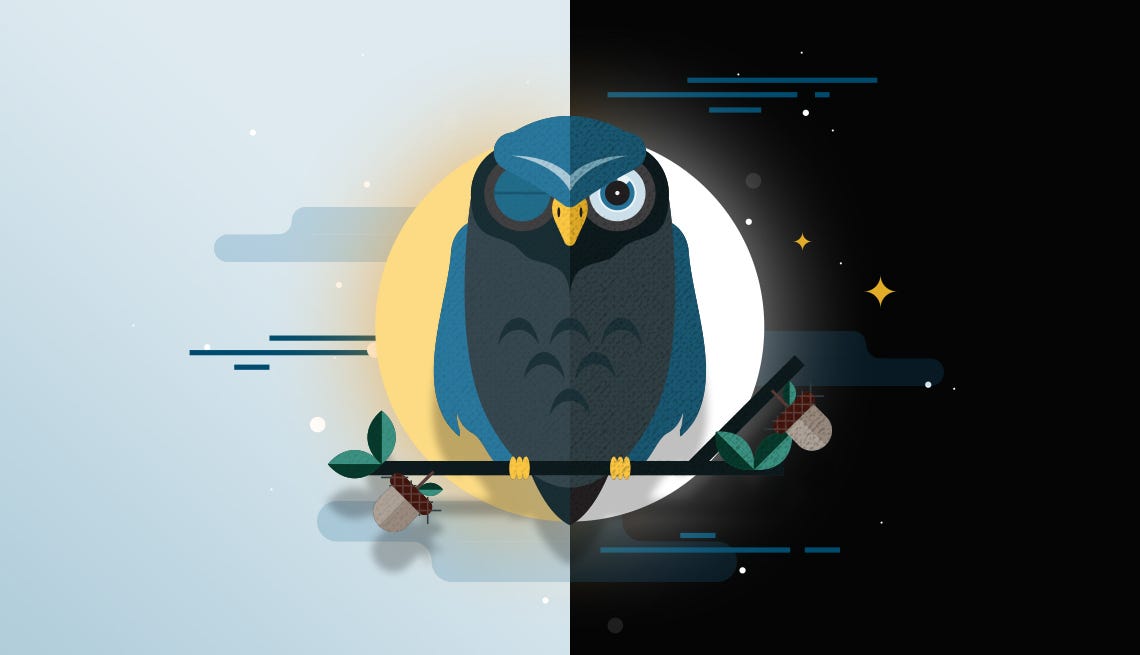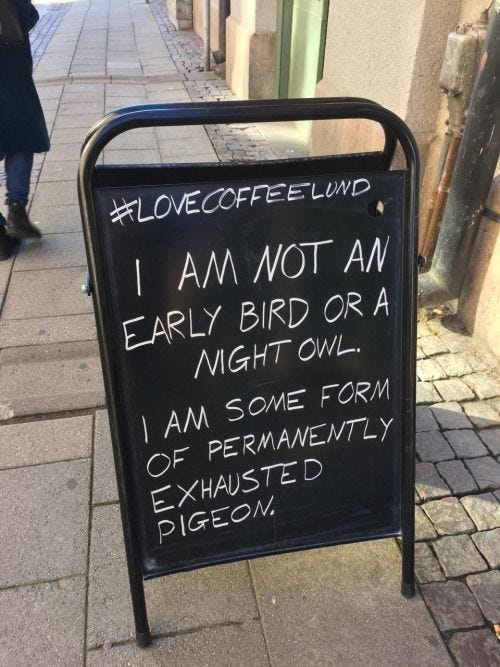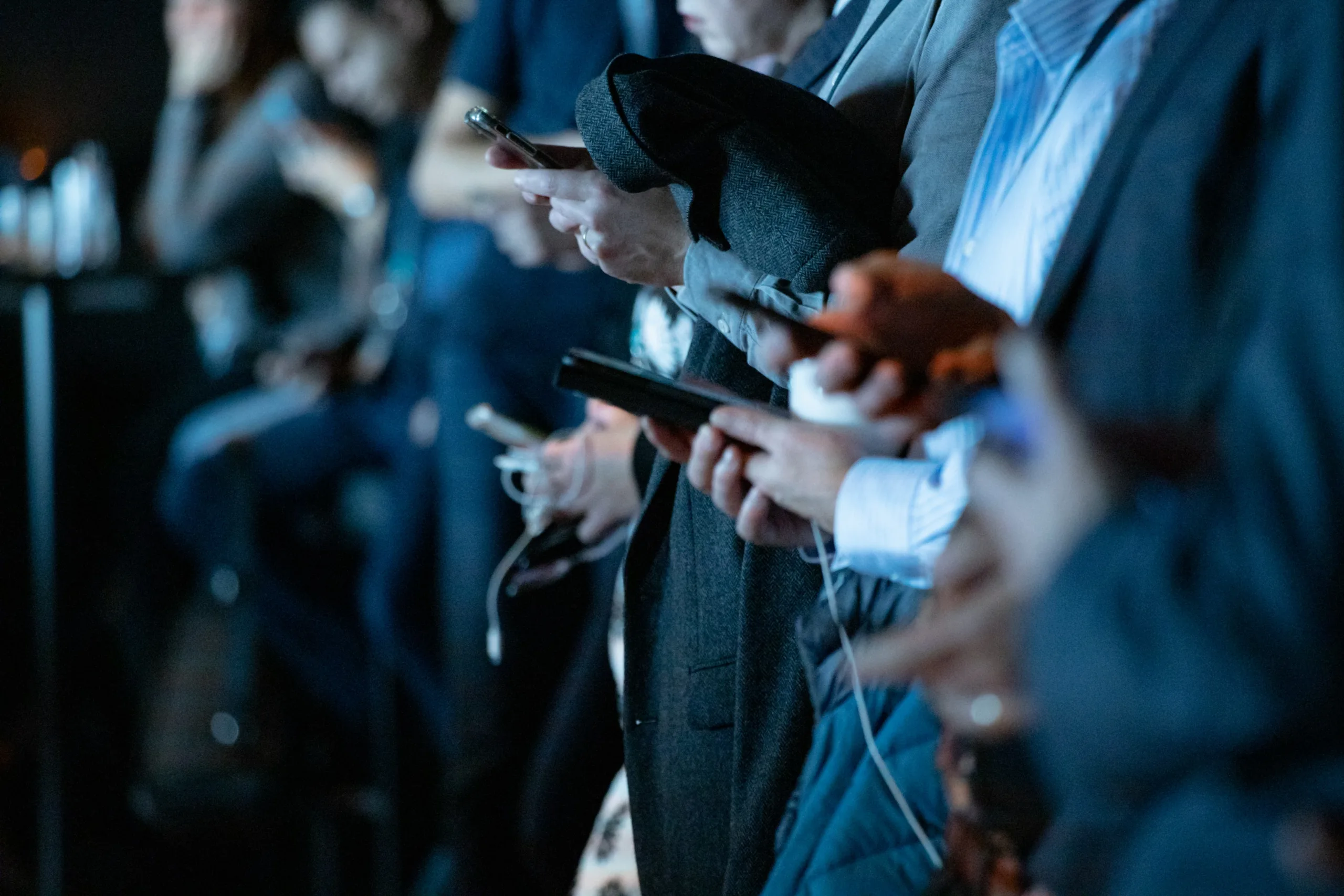
CITYHUB: YOUR KEY TO THE CITY
March 15, 2021
UN-BLOCKCHAIN
March 22, 2021I hate mornings! My perfect morning starts after 9am, but most of my life I have been thinking that I’m lazy, because it’s what you hear, when you don’t fit into the standard life schedule.
Most of the world lives in a standard “fixed” 9-to-5-type of society, wake up early to have breakfast before work, get kids to school, drive to work… And then sleep much longer over the weekend, enjoying the moment, when you don’t need to use an alarm clock. At the same time, many people struggling with following this life pattern and adjusting themselves to it. To answer the question of why some people happily waking up before the alarm, while another part of humanity sincerely hates mornings, we need to understand what is chronotype.

Chronotype — is an individual characteristic of the daily rythms of the human body to sleep at a certain time, the so-called internal body clock. There are different systems of gradation of chronotypes, but the most well-known are early birds (morning people, who prefer to go to sleep early and wake up early) and night owls (evening people, who prefer to wake up late and go to sleep late).
It used to be thought, that chronotype is a behavioral trait and in our mind has been rooted a negative stereotype that the night owls are just lazy. The last decade conducted many kinds of research, where it was found that your chronotype is something you are born with. It depends more on your DNA than behaviors. (I can breathe out, I’m not lazy!!!)
Somehow our society was built up by morning larks, even though they are not a majority.
– How did we let larks draw up a timetable for how this world works?
– They did it while we were sleeping…

In Jeffrey Larson’s study, a family therapist at Brigham Young University, Utah, he found out that 44% of people were morning types, 32% evening types, and 24% undifferentiated. Different researchers got different results, however, none of it confirming the idea, that morning birds are a major population. Other researchers claim that 69% of the population waking up earlier than their body clock. Sleep expert, Carolyn Schur, in her research says that 85% of people follow early birds schedule, but only 22% would continue to do so if they have a choice. This result confirms that society is built up in the wrong way.
Long-term disruption of the body clock for the night owls can cause many health issues, such as a 10% increased risk of all-cause mortality, obesity, 2nd type of diabetes, depression, and other variety of mental and physical ailments. On the other side, early birds, more aligned with a 9-to-5-type society and have better mental health.
Till Roenneberg, professor of chronobiology at the Institute of Medical Psychology in Munich, was the first who introduced the concept of social jetlag. He describes the problem of dissociation of life rhythm and internal body clock and also points the health issues for those people who get up earlier than their inner clock. He found that they most likely are smokers, drink alcohol, and drink a lot of caffeine during the day.
It is a huge problem in modern society, as night owls experience jet lag on a daily basis. Most of the working places still don’t have flexible working time and social jetlag is still not a well-known problem. Most of the people who experienced it, trying to catch up more sleep during the weekends and every Monday put themselves into a stressful schedule again. Scientists suspect that the reason that most of the strokes occur on Mondays can be hidden in the social jetlag problem. Looking at the statistic this problem seems huge and very underestimated.
The world is still trying to squeeze us into the one frame of the perfect world. But don’t you think that almost 8 billion people can’t be the same? Why are we all trying to find one perfect way?
But even after these findings, our world is still not getting to a more flexible working schedule and we still have those stereotypes that those who wake up late are lazy. Recently, I had a meeting with my career coach (and he is really a good one) and one of the first things he said to me, that I can’t say in a job interview, that I’m tired during early mornings and prefer to work after 10am. I should keep quiet about it and show my flexibility. If I’ll tell the truth, I will have lower chances of getting the job. Have you experienced it in your life?
Many years ago, I was brainwashed by my friends and relatives who read the book “The Miracle Morning”. For a long time, they cited this book and told me that all successful and brilliant people woke up at 4–5–6am to meditate, work out, and plan their day. A nightmare for night owls. A nightmare to explain to your friends (and to yourself) that you can still wake up late and still be okay (and probably be just as successful as a 4am person).

When I was working as a flight attendant, no one considered employees chronotype. Some days I woke up at 3am to be at the airport at 5am, sometimes I slept 2–3 hours before my flights. At the same time, they were highly concerned about fatigue consequences and safety issues. In case of emergency, lack of sleep can make you slower or affect your decision-making, thus dramatically increase negative outcomes. Most of the technogenic catastrophes, planes, and space shuttles crushes happened because of human bias and errors. The good news is, some airlines, such as Southwest Airlines start considering it and allow their pilots to choose morning or evening shifts!
How the world can benefit from having a flexible working schedule? For obvious reasons — a population with less health and mental issues, less all-cause mortality, and negative habits. At the same time sleep links with productivity and affect the economy. Dr. Roenneberg states that “It’s a huge financial burden not to sleep properly. The estimates go toward 1% of gross national product, both in the United States and Germany.”
Some US schools tested new studying schedules with the later start of the day and most of the students noticed better sleep quality and higher energy level. In the UK, the private school changed the time for starting classes from 8 to 10 am, and as a result, academic performance has improved, and the number of absenteeism decreased.
One of the most impressive examples of adapting working hours to employees chronotype we can see in a Danish pharmaceutical company AbbVie, who increased work-life balance satisfaction from 39 to nearly 100 percent. They did not only allow their employees to start working according to their morning or evening type but also consider avoidance of a rush hour, provide flexibility for personal needs, such as getting children from school and finish their working tasks later at home. Sounds fantastic, isn’t it?

According to the Society for Human Resource Management, the percentage of HR Managers, who offer flexible working hours at their companies, are growing yearly. Last year more and more innovative ideas arose in this field when it was implemented, such as gathering team members according to their chronotype to maximize team success or conduct company meetings during “core hours” when all the employees are at work. Digitalization and remote work during the last “covid” year, proved that these changes could be much more easily adapted than ever before. This is a win-win strategy, where HR Managers noticed increased productivity because employees coming in at work the a time when they’ve had enough sleep, feel better, and are able to perform their duties more effectively. For now, this innovative way of planning employees’ schedules happening only pointwise, you will not find many examples of it. There is still no researche on how flexible working hours can affect economic growth for companies. Hopefully, very soon more and more companies will try out this strategy and it will become our new norm.
The modern world shaped by the 4th industrial revolution offers extreme personalization of products and services. Maybe it is time to get to a personalization of working patterns and make our working place the better place?




